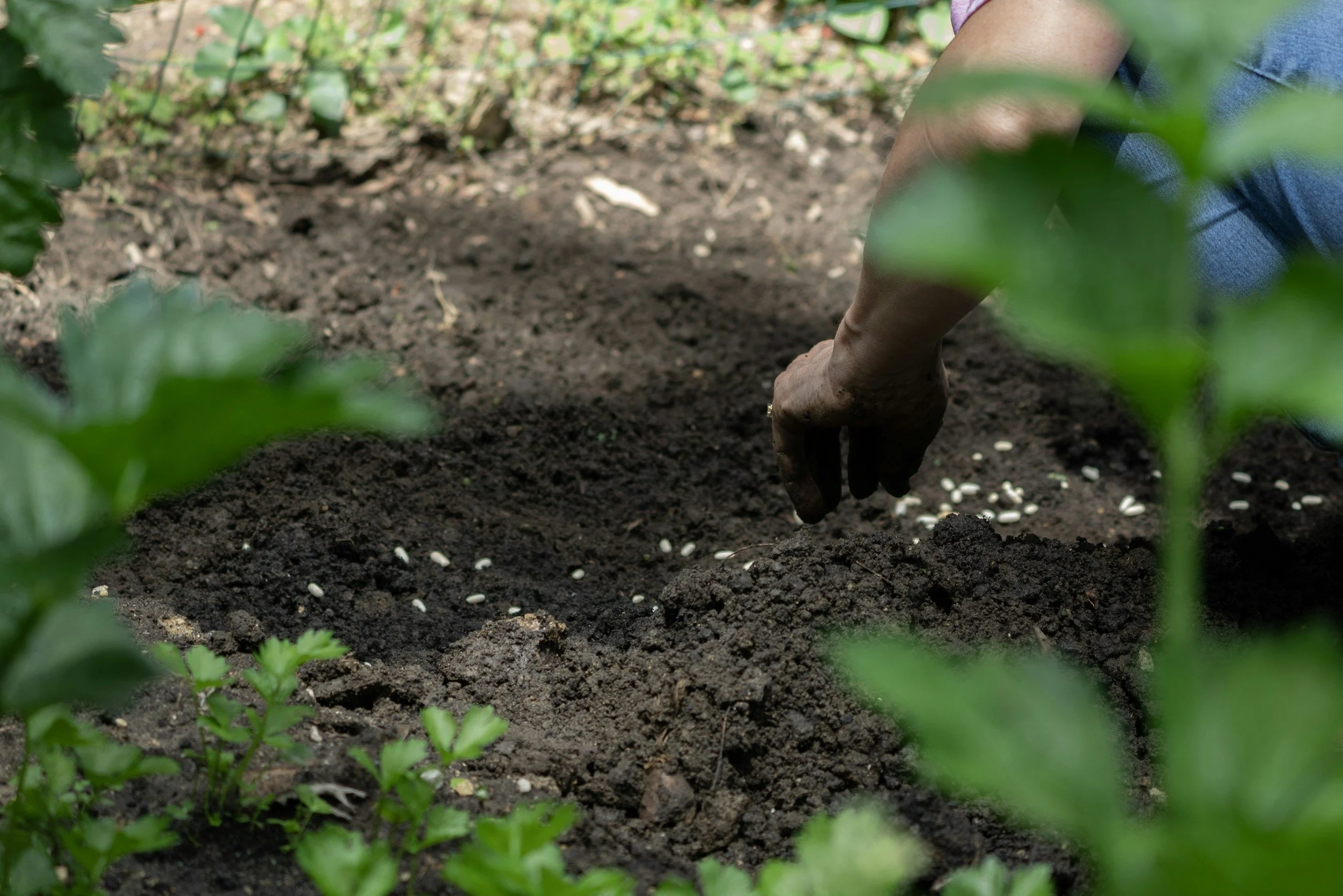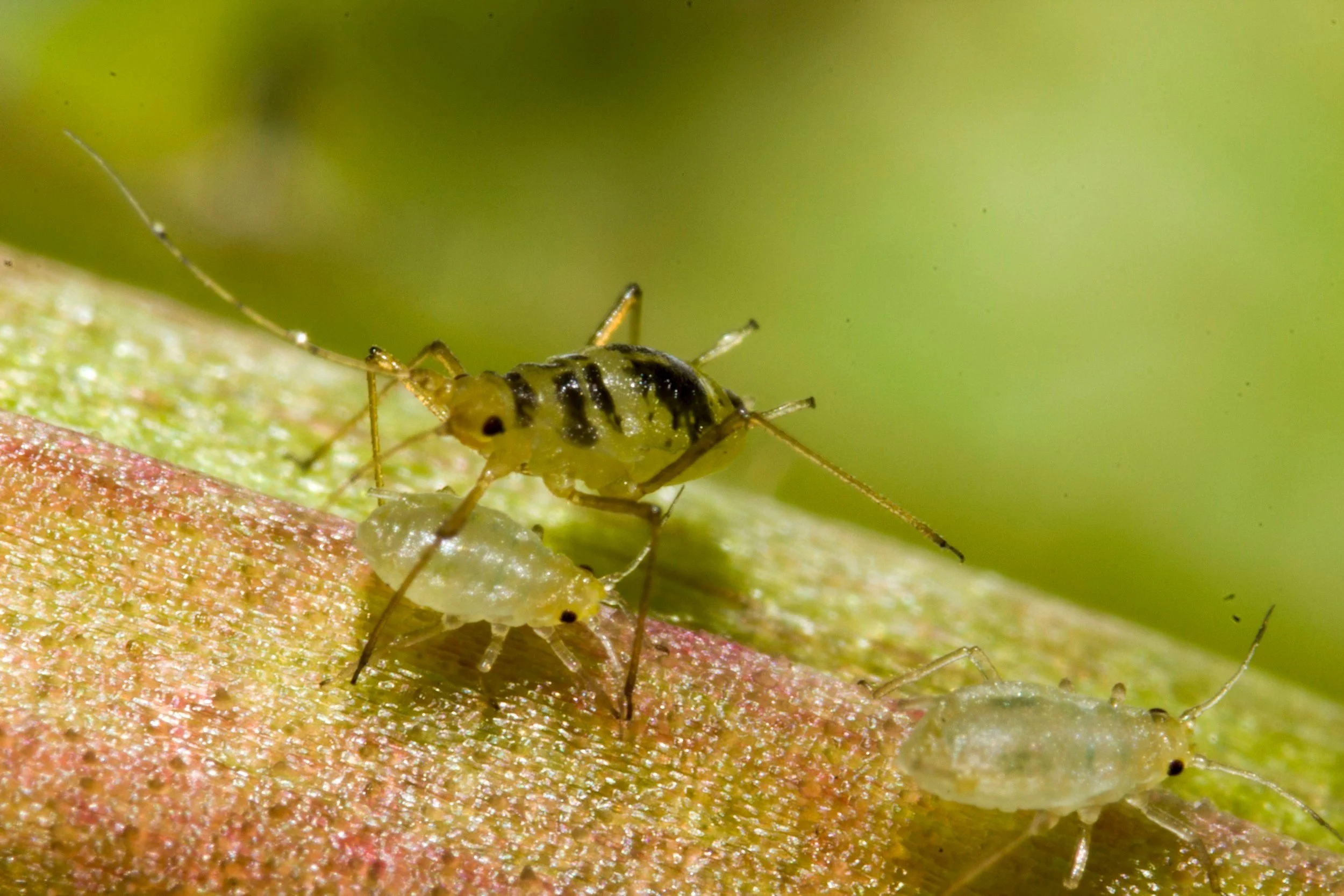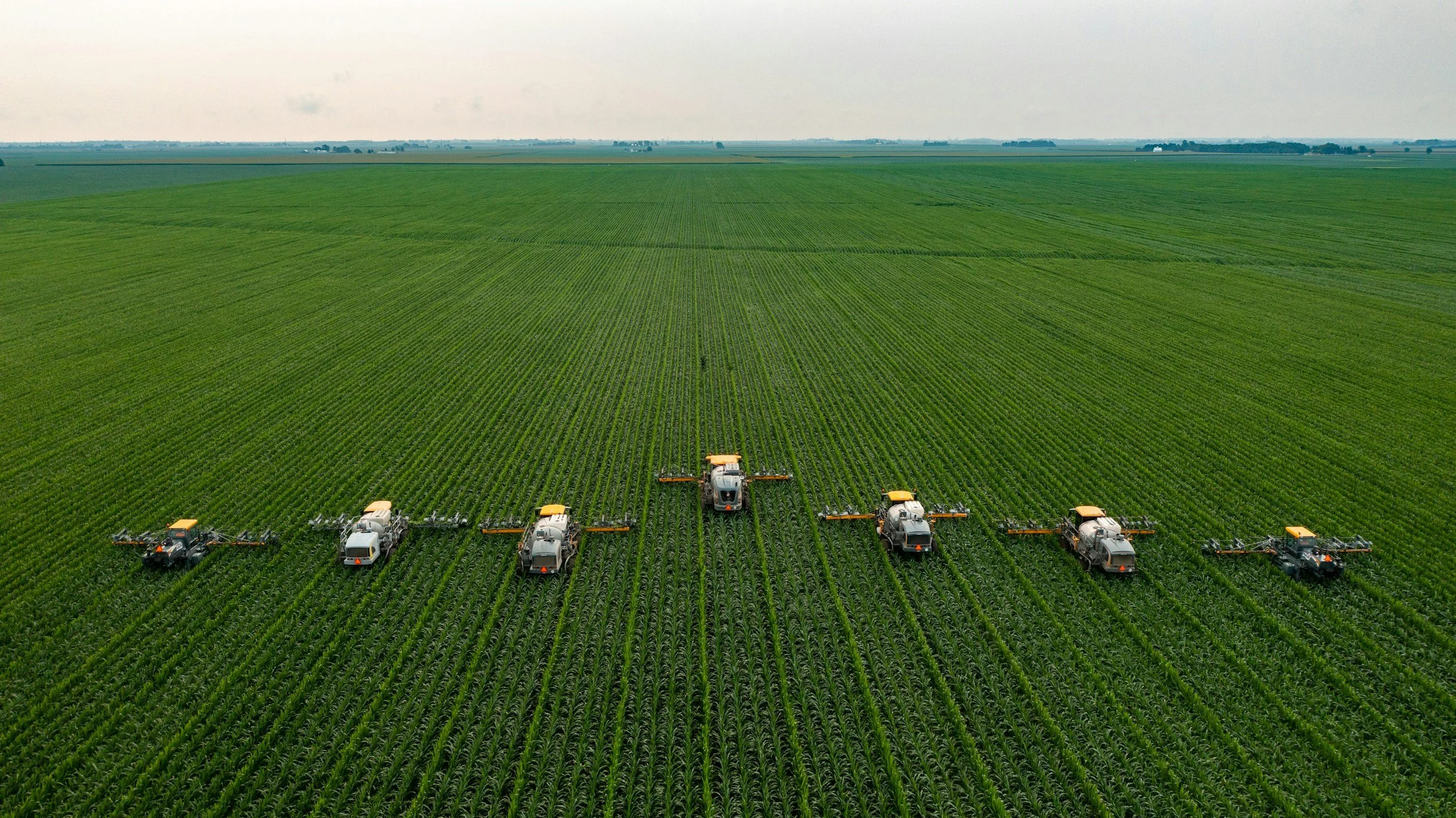The Therapeutic Benefits of Planting a Fall Vegetable Garden
/Gardening is increasingly recognized not just as a hobby but also as a therapeutic practice that can have significant health benefits. According to a 2017 study published in the journal Preventative Medicine Reports, engaging in regular gardening activities encourages physical exercise, promotes mental well-being, and provides opportunities for social interaction—all of which contribute to overall health.
The act of cultivating plants requires physical movement, from digging and weeding to watering and harvesting, effectively serving as a low-impact form of aerobic exercise. This type of physical activity has been associated with reduced levels of stress, anxiety, and depression while improving cardiovascular health and strength.
Aside from these benefits, gardening facilitates a connection to nature that can enhance emotional resilience and psychological stability. The sensory experiences involved in engaging with these green spaces—such as the feeling of soil between one's fingers or the sight and smell of blooming flowers—can evoke positive emotions and boost mood. Engaging with nature through gardening has also been linked to improved cognitive function in older adults, potentially delaying cognitive decline and enhancing your quality of life. If you grow at least some of your own food without using synthetic pesticides, you also reduce your exposure to these harmful chemicals. Overall, regular engagement in gardening emerges as an enjoyable avenue for fostering both physical health and mental wellness within diverse communities.
This article delves into 7 of the health benefits of gardening in the fall and ends with suggestions on what to plant this fall for a bountiful garden full of fresh vegetables and herbs.
Fall is the best time of year to garden
The fall season is arguably one of the best times of year to grow a garden. If you live in an area with a long growing season, you can enjoy fresh-picked herbs and vegetables well into the fall season. And in many areas of the world, the cooler temeratures of fall make it easier to tend to plants, since they don't have to content with heat-related stress and insect infestations. You'll also be at much less risk for heat-related illness as you work in yor garden during the daytime.
So as the days grow shorter and temperatures begin to drop, the fall season presents a unique opportunity for gardeners. Hardy vegetables such as kale, spinach, and Brussels sprouts can withstand frost and often taste sweeter after exposure to cold temperatures. Fall is also a great time to plant root vegetables like carrots, beets, and turnips, which can be harvested later in the season or stored for winter use. Other benefits of fall gardening include these 8:
1. Gardening builds self-esteem
Gardening is more than just a means to cultivate plants; it can also serve as a powerful tool for building self-esteem. Many people erroneously believe that they lack a "green thumb," and this doubt creates barriers to getting started. But by tilling, planting, nurturing, and eventually harvesting your efforts, you can discover new capabilities within yourself. As you see seeds sprouting into life, you start to recognize your ability to cultivate both a garden and your own self-confidence. Fostering a relationship with nature also creates a deeper connection to the earth and can transform how you perceive your own potential contribution to the well-being of our planet.
Mastering the various tasks involved in gardening can also instill you with a sense of accomplishment that transcends the physical act itself. The recurring cycle of planting and then reaping fresh food reinforces the idea that your efforts lead to tangible rewards, inviting you to embrace challenges with the kind of resilience that can spill over into other areas of your life.
2. Gardening is a heart-healthy activity
Gardening is also excellent cardiovascular exercise, which can have a positive impact on your heart health. Engaging in activities such as digging, weeding, planting, and watering can elevate your heart rate, increase overall fitness levels, and improve circulation. Research has shown that regular moderate-intensity exercise helps reduce the risk of heart disease, lowers blood pressure, and can even improve cholesterol levels. Best of all, if you are not a gym person, incorporating gardening into your routine allows you to enjoy the outdoors while getting an effective workout without the need for a gym setting.
3. Gardening reduces stress
Gardening can be a powerful tool for reducing stress when it provides an escape from the chaos of everyday life. Engaging with nature by visiting green spaces is scientifically proven to lower cortisol levels, which can alleviate feelings of anxiety and depression. A study published in the Journal of Health Psychology in 2011 found that individuals who engaged in gardening activities reported significantly lower levels of stress and anxiety compared to those who participated in other types of leisure activities.
As you dig, plant, and care for your garden, the physical exertion also stimulates the release of endorphins, which promote a sense of well-being. Being immersed in vibrant greenery and the beauty of blooming flowers can also elevate your mood and spark creativity. Nurturing plants is a mindful practice that encourages you to slow down, focus on the present, connect more deeply with your immediate environment, and clear your mind of all other thoughts. Just remember to change positions frequently to avoid aggravating existing back problems, and be sure to lift anything heavy from your legs, to avoid unnecessary strain.
4. Gardening can make you happier
Gardening is more than just a hobby; it’s an enriching experience that can significantly uplift your mood and overall well-being. The simple act of getting dirt under your nails while digging in the ground connects you to nature in a profound way. This tactile engagement not only fosters a sense of accomplishment as you nurture plants but also serves as a welcome distraction from the stresses of daily life. There’s something inherently satisfying about cultivating life, watching seeds sprout into vibrant blooms or bountiful vegetables, which brings joy and fulfillment to gardeners of all skill levels.
What's more, recent studies have highlighted the mental health benefits associated with being in contact with soil, particularly one specific bacterium known as Mycobacterium vaccae. This beneficial bacteria has been shown to stimulate neurons that release serotonin—our body’s natural mood stabilizer—which can alleviate symptoms of anxiety and depression. Inhaling this healthy microbe while tending to your garden may provide a natural lift to your spirits, enhancing feelings of calmness and contentment. With each breath filled with earthy scents during gardening activities, individuals may find themselves not only improving their physical space but also lifting their emotional state, reinforcing the idea that a little dirt can indeed lead to greater life satisfaction.
5. Gardening can improve hand mobility and strength
Gardening is not only a rewarding hobby that allows individuals to cultivate beautiful plants and fresh produce but also serves as a fantastic workout for the hands. Engaging in tasks such as digging, planting, pruning, and weeding provides a form of resistance training for the hands and fingers, promoting muscular development and endurance in these areas. Over time, these activities can enhance grip strength and dexterity, making everyday tasks easier and more efficient. This natural form of exercise encourages proper mobility in the joints of the hands while fostering flexibility and coordination. It's especially beneficial as you age and can help counteract the natural decline in muscle strength that often happens as people get older.
If you are disabled, there are also numerous long-handled and ergonomic tools that can enable you to enjoy the fruits of gardening without injury or undue stress to your body; gardening from your deck or patio are often the best options if you are wheelchair-bound.
6. Gardening is good for children
Gardening offers unique benefits for children by encouraging hands-on learning and fostering a love for nature. Early exposure to dirt has also been linked to numerous health advantages, including reduced allergies and lower risks of autoimmune diseases: this highlights the importance of outdoor play in childhood development. Children engaged in gardening more easily develop essential life skills -- such as responsibility -- through regular plant care, while also gaining more awareness of where food comes from and how it grows. In this way, gardening becomes an enriching experience not only for personal growth but also for promoting overall well-being within the family unit, which can learn about nature's cycles and the importance of eating fresh food together while enjoying a healthy outdoor activity.
7. Growing your own food can make you healthier
Several media reports have recently focused on the problems caused by toxic sewage sludge, which was offered for free to commercial farmers in the US to use as fertilizer. The thinking was that the waste needed to go somewhere, and using treated sewage on farmland would be a win-win situation for local governments and farmers alike. The problem is that this sludge contains chemicals known to cause problems to human health and the environment, especially PFAS (Per- and polyfluoroalkyl substances) and PFOS (Perfluorooctane sulfonate), sometimes referred to as "forever chemicals" because they never break down. PFAS and PFOS have been linked in multiple clinical studies to infertility, cancer, developmental delays in children, liver problems, mental health disorders, and a host of other problems. Think you can avoid this by eating organic? Unfortunately, toxic sewage sludge has been widely used on organic and conventional farms alike. Here's where growing at least some of your own food can help reduce your exposure to PFAS and PFOS as well as other chemicals that are commonly foudn in sludge.
By cultivating your own fresh food using sound, eco-friendly methods, you'll be encouraged to develop healthier eating habits and you'll gain a greater appreciation for whole foods while learning how to incorporate more plant-based meals into your diet. Above all, you'll be able to enjoy fresh-picked, nutrient-dense vegetables, fruits and herbs that taste far better than most store-bought varieties.
How to get started gardening this fall
Even if you're just starting out, you can still grow a garden this fall. If it's your first time, start small - learning how to grow your own food is a marathon, not a sprint. You may want to begin with a few potted herbs in a sunny window or -- if you live in an area with a long growing season, grow a container garden, starting with a few vegetables in pots. You can plant your container garden from seeds if nurseries in your area have stopped selling seedlings this time of year. You can also root herbs like basil in water from cuttings or re-grow some foods from store-bought vegetables (lettuce and bok choy grow very easily from food scraps). If you want more ideas on what to plant this fall, sign up for our Free Resources library for access to seasonal gardening charts. You can also click the image below to purchase a copy of our detailed succession planting guide (tailored to USDA growing zones 2-13) or see our other gardening printables by visiting our store. (We use Stripe payment processing for secure payments).











































If you’ve ever turned to magazines, gardening shows, or even your local nursery’s stock to try and plan your spring garden, you’ll know it’s easy to feel overwhelmed by all the information – some of it conflicting – you can find out there. This is especially true if you’re new to gardening. As the days become warmer and longer, more people start shopping for plants and gardening supplies. It really is a perfect time to start planning a food and/or aesthetic garden, even if the weather hasn’t quite warmed up enough for you to transplant everything into beds outdoors.